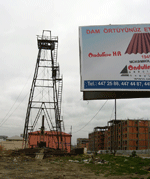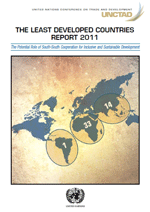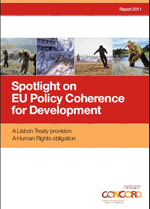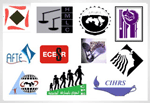Published on Fri, 2011-11-25 08:22
The economic growth driven by extractive industries as its main motor, led by increasing commodity prices, “is not benefitting the majorities” of the population of developing countries, according to the Social Watch Report 2012, that will be launched in the middle of December in New York. |
Published on Thu, 2011-11-24 07:55
South-South cooperation can be conducive to the emergence of an effective and stronger State in Least Developed Countries (LDCs), according to UNCTAD´s most recent report, which proposes a new type of developmental State for LDCs --one that is more appropriate to the specific vulnerabilities and the structural constraints of LDCs. |
Published on Wed, 2011-11-23 08:07
All over the developing world, European Union (EU) policies continue to seriously undermine people's rights, because these policies are not coherent with development objectives. The EU fails to comply with its own treaty obligations, according to a new study released by the European NGO Confederation for Relief and Development (CONCORD), reported the African Press Organization (APO). |
Published on Tue, 2011-11-22 09:28
International development cooperation “is and must be regarded as a global public good” and with full participation of the civil society, according with the contribution of a thousand Latin American and Caribbean organizations to the 4th High Level Forum on Aid Effectiveness that will be held next week in Busan, South Korea. |
Published on Mon, 2011-11-21 07:45
Thirty-nine Egyptian human rights and development organizations have drafted a new law to regulate NGOs and sent a copy to Prime Minister Essam Sharaf. The proposed law provides for the autonomy of Egyptian civil society organizations from the state and its administrative apparatus. At the same time, it guarantees the transparent operation of these organizations in terms of their activities and sources of funding. |
SUSCRIBE TO OUR NEWSLETTER







